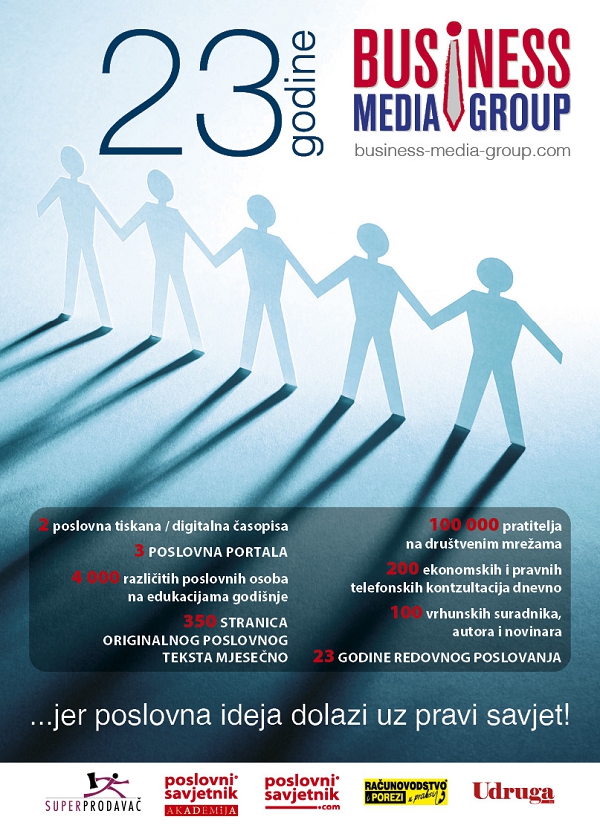JOHN LODDER: Change - People always make the difference
In my last column I gave a summary of the annual ‘Davos-meeting’ about transformations in the global economy and new requirements for Leadership. This time I'll go a bit more into detail: What is changing? What are consequences? How do companies and top managers respond? What is the importance of employees? I hope this is food for thought and gives you some ideas to apply in your own practice.
What is changing these days?
Just a few examples:
The speed and quantity of Information: ‘we live in the age of information overload’ (Daniel Levitin). What is true today might be wrong tomorrow, what is possible today could be too late tomorrow. New technologies, products, theories, rules, possibilities and limitations come and go in a high speed.
The smart industry: the sector where flexibility and speed of development are the core values of new products and production technology.
Network-centric production: where people and production machines are connected in many different ways.
- Internet of Things: many new possibilities for entrepreneurs, companies and consumers in all sectors because more and more products get smarter (thinking tools) and are connected with the internet.
- Disruptive technologies: new product functions, services and earning models become possible like e.g. used based insurances, octocopters, 3D-models for 3D printers etc.
- Disruptive innovation: it creates new markets and opportunities; but it also creates problems because certain companies will not survive because they do not adjust in time.
- Social innovation: The way organisations and people cooperate is changing rapidly. The employee becomes more and more the capital of the company.
Change and Transformation
Sitskoorn (2016) says: ‘Change exists for as long as people and time exist. Change is a very basic for our development and - in that sense - necessary for progress. If you, as a company or as an individual, do not change along with your environment or the spirit of time, it might have very nasty consequences.’
The ‘Red-Queen hypothesis’ states that ‘If an organism wants to survive and reproduce itself in a constant changing environment, this organism has to constantly adjust and develop.’ (based on Lewis Carrol’s Alice in Wonderland) Or, as Herbert Spencers said: It is about the ‘survival of the fittest’.
Although this sounds as common sense, experience however shows that we ‘en masse’ neglect these insights, consciously or unconsciously. With serious consequences at different levels, for instance:
Companies like Kodak, Nokia, Blackberry, etc. went bankrupt because they were too late in adjusting to technology or market developments.
- Individuals who cannot or will not cope with change; who have a problem with today’s information overload; who cannot resist the temptations of the 24/7 availability of everything you would like to buy; or who cannot make decisions anymore because of that.
This increasingly results in physical issues like stress issues, high blood pressure, burn-out, heart problems and addictions.
Dynamic knowledge replaces Static knowledge
Static knowledge means that you learned a profession and with that knowledge you could work for many years, sometimes even until your pension. The changes today are so many and the changes have such a high speed that, if you want to survive, you need to develop dynamic knowledge.
Dynamic Knowledge means to use your brain effectively and feed your brain constantly with new information, new knowledge and, especially, with flexibility and creativity.
Working and learning are - in the successful companies - interwoven with innovation and managing.
Today it is impossible for a company to survive if it is only depending on the ‘brain’ of one (wo)man.
Combined with other changes and developments in society, companies develop more and more to people-centric-systems where ‘all brains’ are needed and where teamwork is a decisive factor for success.
On your personal life this has similar consequences.
If you want to get, or keep, a good living in this exiting dynamic world you have to keep up with new information and develop new skills. Only then you keep on developing, which makes it possible that you can think of doing other or new activities, which, in turn, also contributes to the quality of your life.
Top managers have to change
As a top manager you need to change if:
- You repeatedly complain about others.
- You think no one is good enough, except you.
- Your first thought is how they need to change.
- You think you have the best ideas on the team because you do not share information.
- You think you are the hardest working person on the team because you do not know what others are doing.
- You think you are the smartest person on the team because you do not know what others are thinking.
Company cultures change
More and more companies understand these external changes and are looking how to adjust their company culture to that.
More important however, is that many top managers and CEO’s become aware that it is no longer ‘changing their people’ but ‘to change themselves’.
The number of top managers that follow a training and who hire a personal coach is fast growing because they overcome their blind spot: ‘the need to fix others blinds you to yourself’.
These (top) managers realize that too many employees are not engaged at work and that the< hve to take action.
Gallup's 142-country study on the ‘State of the Global Workplace’ shows that worldwide 63% (900 million people!) is "not engaged", they lack motivation and are less likely to invest extra effort in organisational goals.
Positively: this also means that 37% is engaged, thanks to a modern Leadership style.
In CEE countries engaged employees add up to only 12%.
Sadly, these numbers of who are negative and potentially hostile to their organizations have barely changed the last 12 years, meaning that a vast majority of employees do not develop and contribute at work.
Positively: one in eight workers are psychologically committed to their jobs and making positive contributions to their organizations.
Maybe it is time to take action on that?
Results Only Work Environment
We see that more and more companies change their culture to a ‘Results only work environment’ in which employees get the freedom to decide where and when they want to work and, where they are accountable for their results instead of for the exact hours they worked.
In Croatia, Ericson Nikola Tesla is the only good example I know, if there is another one, please inform me.
VUCA World
In the USA this changing and developing new world is called the VUCA World. VUCA stands for:
Volatility – the dynamics of change.
Uncertainty – the unpredictability of changes in the future.
Complexity – the number of variables that influence change.
Ambiguity – the confusion between cause and effect.
As management history shows, what comes from the USA, is fast adopted in Europe, and this already is. For management this means juggling: keeping 5, 7 or 11 balls up at the same time and hoping it will work. As said before, management cannot do this alone anymore, you need your engaged people, your team; by now you understand why!
How to make your organisation fit and flexible to address these challenges?
There are four stages in the development of a flexible company: re-active, active, pro-active and transformational. See figure 1.
Most organisations are Re-active or Active. These organisations do not know how to cope with fast and big changes.
Their focus is on the short term and they have many reasons not to change. Bureaucracy makes these companies slow; they are not flexible because of all kind of rules and procedures.
Pro-active and Transformative companies are organised to be able to adjust fast.
They anticipate fast on external changes. Transformative companies are organised on a maximum flexibility level. They work based on an integrated change strategy which makes them often trendsetting in their markets. However, only 5% of the companies are in this transformative stage.
Figure 1: Development model for flexible organisations. (Van de Wetering, 2016)
People make the difference
In this model you see that both the degree of flexible organising as the development of the mind-set of all people is important to become a transformative organisation.
A mind-set is a mental attitude that determines how you interprete experiences, how you think, how you feel and how you react in situations. A mind-set is mostly an unconscious process.
If the mind-set in an organisation is low, this organisation spends (nearly) no active effort on the development of the mind-set of managers and employees. This organisation reacts to change with an unconscious stimulus-response, primarily, short cycled, and emotional.
If the mind-set in an organisation is high, this organisation has an active focus on ‘managing the mind-set’ of its people. This company has a conscious behaviour and will have the feeling to be in control of external developments.
If the flexibility is low the organisation cannot effectively respond to external changes. A company with a high flexibility is capable to - in an organic way- respond to external changes. With a very high flexibility the company is even capable to be(come) a trendsetter in the market.
There are many ineffective combinations possible between flexibility (horizontal axis) and mind-set development (vertical axis). This could result in e.g. low flexibility, dis-engagement, resistance to change, talented and good people leaving your company etc.
People always make the difference
If you look at today’s global village, which is changing faster than ever, I can summarize the consequences of these changes and transformations into the conclusion that a company’s future is depending on the quality of its employees, whether you like it or not.
Without excellent customer service, without competent, highly engaged, flexible and creative employees, you will not make it.
This means that you as a manager have to foster your people, challenge them, appreciate them and award them.
And, especially, inspire and support them to become a great contributor to your company.
John Lodder MA., MSc.
www.balance-consultancy.com















